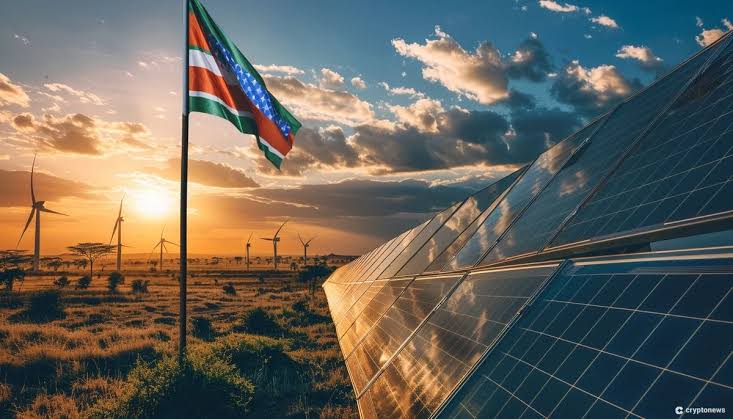With the goal of expanding Kenya’s already booming renewable energy sector, bitcoin mining behemoth Marathon Digital has announced a new cooperation with the ministry of energy and petroleum (MOEP).Key energy infrastructure development, policy concepts, investment strategies, and the exchange of technical expertise and research will be the main areas of focus for this cooperation. The CEO of Marathon Digital, Fred Thiel, highlighted the following benefits of cultivating this kind of connection with Kenya’s Ministry of Energy and Petroleum following the recently signed partnership.
“This agreement with the Ministry of Energy and Petroleum is a pivotal moment for our business as it provides us with a clear framework to pursue opportunities across the Republic of Kenya. It demonstrates the innovative approach that Kenya is taking to optimize their energy usage and to enhance their technological infrastructure.”
According to the International Trade Administration (ITA), more than 80% of Kenya’s electricity is generated through renewable energy sources.
The electrical infrastructure of Kenya is mostly powered by geothermal energy, however wind, solar, hydroelectric, and other renewable energy sources are also utilized to supply electricity to the grid.According to the ITA, Kenya’s abundant annual sunshine makes it one of the world’s most cost-effective geothermal energy producers and a strong contender for solar energy production.
Kenya’s government, which has been looking for ways to regulate digital assets but has been wary, if not downright antagonistic, of the adoption of innovative blockchain and cryptocurrency projects, has taken a surprising turn with MOEP’s partnership with Marathon Digital. In September 2023, following several recommendations from government agencies and officials, the Kenyan government outlawed Worldcoin’s operations within the nation for a year. The main reasons for the prohibition, according to the government, were security risks associated with Worldcoin’s biometric data gathering, privacy concerns, and a lack of transparency.
After the one-year suspension has ended, Worldcoin might be allowed to return to Kenya, but not before reapplying and receiving regulatory approval from the country’s Capital Markets Authority. Before beginning operations again in Kenya, the initiative has to finish a state-administered data security workshop called the Data Protection Impact Assessment (DPIA).

